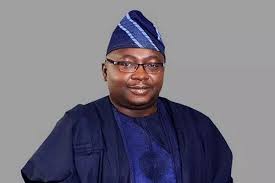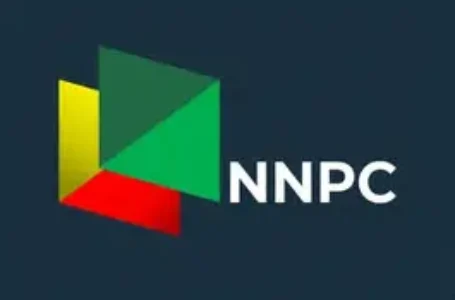Saudi Aramco Raises $4 Billion as Oil Prices Remain Under Pressure
Adelabu Says Immature Market as FG Halts Electricity Regulatory Transfer to States

Adebayo Adelabu, the Minister of Power, announced on Friday that the Nigerian government has paused granting regulatory autonomy to state governments.
He explained that this decision stems from the necessity for state governments and power sector stakeholders to fully comprehend the requirements for operating an electricity market.
The minister made this announcement during his speech at the 8th Africa Energy Market Place (AEMP) conference in Abuja on Friday.
He emphasised that a thorough understanding of the transfer of regulatory oversight to states is crucial for ensuring the survival and sustainability of the country’s power sector.
He said, “Therefore, we must tread carefully, we should not be in a hurry, the market is not a mature market, it is not mature enough. With everything centralised for a single regulator, we have a myriad of issues. Now we tend to create a regulatory framework across 36 states, it is something that we must do in a highly systematic and strategic manner.
“We need just a couple of states as a pilot, which is why I actually halted granting of further regulatory autonomy to states.”
However, the minister said the regulatory oversight transfer will be tested in specific states across the nation’s geopolitical zones, highlighting the unique characteristics of each zone.
“When we have each of these zones represented in the pilot and we allow it to run for three to six months, or up to a year, all the possible issues would have been reflected so that we are going to have a learning curve, and all those issues will be addressed before granting further regulatory autonomy because I have a feeling that we don’t have a comprehensive understanding of what this autonomy means.
“The fact that we gave a state regulatory autonomy doesn’t mean that it’s just about distribution of electricity but it is regulation across the value chain. Generation within your territory, transmission within your territory, and distribution in your territory, including tariff setting.”
Using Lagos state, for example, they said that the state has almost over 40 percent of national consumption today in terms of electricity distribution. “The moment you take over the regulatory activities of Lagos state, when we talk about tariff, about subsidy, it will be on your neck as a state. I do not know the balance sheet you want to leverage to guarantee the necessary settlements on a monthly basis.
“So we all have to sit down and let everybody have a complete understanding of what this means. And we will know if we are ready to have full autonomy or it will be partial autonomy for the meantime before we achieve a mature electricity market.”
The minister emphasised that many stakeholders underestimate the capacity needed for regulatory authorities in the 36 states, plus the FCT.
He highlighted that each state assuming regulatory oversight must establish a framework and structure to prevent energy theft and vandalism, along with securing sufficient capital for ongoing investments and infrastructure maintenance.
Bart Nnaji, the chairman of Geometric Power, remarked that while the Act brings regulation closer to the people, numerous challenges could emerge during the implementation stage.
He explained that many state governments might struggle to build the capacity required to fulfill the regulatory functions mandated by the Act. Nnaji also pointed out issues concerning the limitations and the sensitivity of state governments toward operators within their jurisdictions.
“On the issue of capacity, it is very clear that what the national regulator has done so far would not be easy to just replicate by the states. Now each commissioner has a lot of training that has been done and they have an institution within a particular area and then you have states that are just coming up, it will take a while.
“So success in terms of capacity for states will be to say, we will face it over time. The first thing you begin to do is handholding by the national regulator and eventually, you can now stand.
Now, on the issue of limits, there is a tendency for state governments to believe that they can have the ability to generate, transmit, and distribute, that they can do it all. However there are DisCos within the environment, and these DisCos are owned by companies. And so the wires are owned by this Discos.
“So understanding that they just can’t go to act as if they can suddenly take over the wires would be an issue. So let them understand how to collaborate with the existing companies.
“Now, the last one about this is sensitivity. I think that all the state governments that are going to want to do this regulation need to be sensitive about a whole number of issues such as cost recovery. People who invest in infrastructure must recover their costs, and so it requires the federal government to work with the states to give them guidance,” he said.
Folake Soetan, the Managing Director of Ikeja Distribution Company, emphasised that states must create a regulatory policy framework to implement oversight at the state level. This framework should foster a conducive environment and attract sustainable investments into the state’s power sector.
She highlighted the necessity for states to devise strategies to tackle liquidity issues within the sector.






